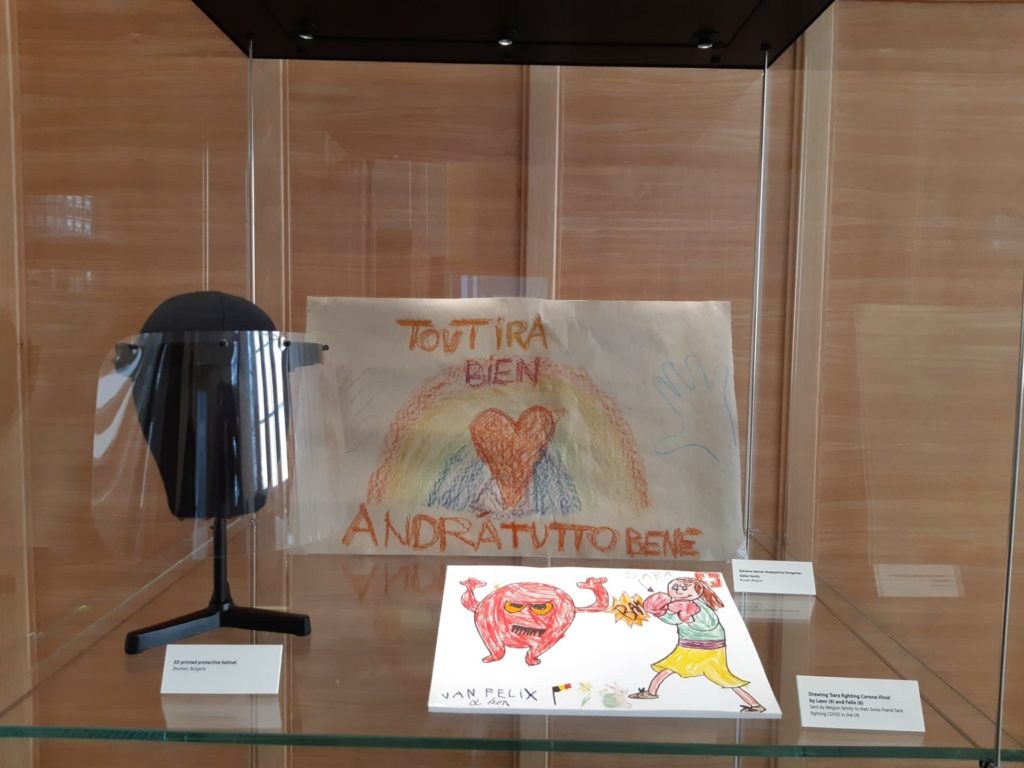The museum reopened this week to the public with a new display from Belgium and across Europe entitled “Documenting Covid”.
After having been closed during the lockdown, the museum opened technically on Monday. After some final preparations, the Covid display is ready for visitors today (18 June). The curated selection of objects reveals the social, economic and cultural impact caused by the pandemic, as well as common themes of solidarity, hope and resilience during the coronavirus crisis.
“There are many wonderful objects that have been produced in response to the lockdown and the pandemic,” Dr Simina Badica, curator of the exhibition, told The Brussels Times. “We have collected objects from all over Europe, showing similar reactions of solidarity and resilience.”
“One artefact that we already fell in love with is the rainbow banner donated by School no. 16 in Schaerbeek. The message in the banner - ‘Everything will be all right’ - started in Italy, the first European country hit by the pandemic and has now become a European-wide symbol.”
Another interesting object is an apparently banal black umbrella coming from Poland. It was decorated and used to protest against the voting of an anti-abortion law in April 2020.
“We should not forget that for a while the right to protest was restricted all over Europe as citizens could not gather anymore in public space. The protesters in Poland stood with their black umbrellas and black facemasks in line for supermarkets, the only public space available to them at the time,” Badica says.
In order to create a safe experience, the museum has adopted a range of safety measures. Visitors can listen to new audio guides in French, Dutch and English and German on their own mobile devices and earphones. Tablet guides are still be available in 24 languages and will be disinfected after each use.
Facemasks are mandatory for all visitors above the age of 12. Visits are allowed for individual visitors or small groups from the same household. Booking in advance is mandatory.
The museum is also planning a new temporary exhibition on the history of fakes and falsifications throughout history which it aims to open in October 2020.
The House of European History was officially opened in May 2017. It differs from similar museums in the EU member states by not glorifying the history of the nation but by focusing on European phenomena and the common memory of historical events, including difficult topics such as wars and European colonialism.
M. Apelblat
The Brussels Times

